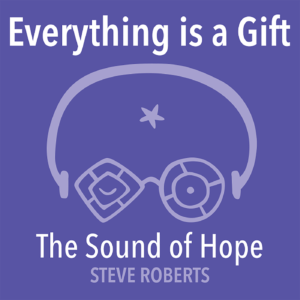 It has been shake-your-head crazy at times. Eight in 10 voters say they feel repulsed rather than excited. Still, this season’s presidential food fight can enrich our lives for years to come. Among the things available to learn is how easily we demonize. And why we do it. And the steep price we pay for it. And how, if we choose, we can do less of it––should having a peaceful heart be something we want to cultivate.
It has been shake-your-head crazy at times. Eight in 10 voters say they feel repulsed rather than excited. Still, this season’s presidential food fight can enrich our lives for years to come. Among the things available to learn is how easily we demonize. And why we do it. And the steep price we pay for it. And how, if we choose, we can do less of it––should having a peaceful heart be something we want to cultivate.
In fairness to those of us rabid to toss a bucket of animosity in the schnoz of the candidate we love to despise, the practice of managing fear, the essential step in limiting such toxic reactions, may be among the most difficult skills to grow.
Why? Because the primary reason we’re afraid is not some Beelzebub out there, it’s the angel in the mirror––us. Specifically, how we have defined reality, how we have answered the question: What’s going on?
You might be inclined to say, “Why, that jerk is vulgar, disrespectful, nasty, and can’t recite the Star Spangled Banner in sign language. That’s what’s going on, for crying out loud”––and you wouldn’t be alone, but you would be mistaken, if you believe that that jerk is responsible for your outrage. That belief makes the jerk all-powerful and you a victim, a puppet. And that can be true only if you choose it, which is not a choice your heart would make, a choice that’s always venom-free.
What’s true to me is that sometimes we define our world in a manner that leaves us feeling immense vulnerability. Our small self, not wanting to assume responsibility for these feelings, is inclined to look outside of us and say, “If it weren’t for [fill in the blank], I’d be happy,” rather than look within and say, “Wow, what world have I created for myself that makes this person’s behavior, this situation, so frightening to me?”
It’s one thing to feel that Hill or Don would be a horrible president, and to invest every ounce of our energy to bring about their defeat, and quite another to hate them, to resent them––in fact to feel anything for them other than good will.
Why the heck would we want to feel that?, you might ask. I bet you know why.
The irony of demonization is that its first, primary, and most lasting impact is on us: physically, emotionally, mentally. It’s the equivalent of saying, “Because I find you most unpleasant, I’m going to brush my teeth with a chainsaw.”
Recognizing how easily we allow that sentiment to hijack our consciousness is one of the most powerful lessons any of us can learn. And this presidential election has been a big, fat chance to do so. To learn, for instance, that nothing is unforgivable; there are just things we have chosen not to forgive––for now. To learn that love is a sacred skill requiring an inner toughness of mind and heart in the face of adversity.
Who would have thought a food fight could be so nourishing?




Colleen said:
You never fail to amaze – thanks (brush my teeth with a chainsaw indeed)
Mary Nessel said:
Grateful that my reality has you in it – thank you, Steve Roberts. Plus Beelzebub!!! Classic!
Thais said:
This is especially helpful tonight!